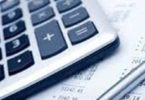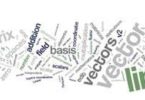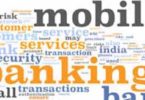Which of the following best describes forensic accounting?
(a) The process of analyzing financial statements to detect errors and discrepancies.
(b) The use of accounting techniques to investigate and uncover financial fraud or misconduct.
Which technique is commonly used to identify hidden or undisclosed assets?
(a) Ratio analysis
(b) Benford’s Law
(c) Asset tracing
What is the key difference between forensic accounting and fraud examination?
(a) It focuses on financial analysis, while fraud examination focuses on legal proceedings.
(b) It deals with civil cases, while fraud examination focuses on criminal cases.
(c) It encompasses a broader range of financial investigations, while fraud examination specifically focuses on fraudulent activities.
Related: credit card quiz
Which technique is utilized to estimate the economic damage incurred in a legal dispute?
(a) Financial statement analysis.
(b) Cost accounting.
(c) Forensic econometrics.
What is a common challenge faced?
(a) Lack of financial documentation.
(b) Insufficient legal expertise.
(c) Inadequate computer hardware.
Which of the following is a leading global forensic accounting company?
(a) Deloitte
(b) Microsoft
(c) Examsegg
What is a key difference between forensic accountants and auditors?
(a) Forensic accountants focus on financial reporting accuracy, while auditors focus on fraud detection.
(b) Forensic accountants specialize in tax planning, while auditors specialize in financial statement analysis.
Which book focuses on the application of data analytics in forensic accounting investigations?
(a) “Forensic Accounting and Fraud Examination” by Mary-Jo Kranacher, Richard Riley, and Joseph T. Wells.
(b) “Financial Statement Fraud: Prevention and Detection” by Zabihollah Rezaee.
(c) “Forensic Analytics: Methods and Techniques for Forensic Accounting Investigations” by Mark Nigrini.
Related: World Bank trivia quiz
Which of the following is a common task performed by CFAPs or CFIPs?
(a) Conducting audits to ensure compliance with tax regulations.
(b) Tracing funds to determine the source and movement of illicit transactions.
What is the typical objective of an auditor?
(a) Uncovering fraudulent activities.
(b) Determining the tax liabilities of a company.
(c) Expressing an opinion on the fairness of financial statements.
Which organization offers the Cr.FA certificate?
(a) American Institute of Certified Public Accountants
(b) Association of Certified Fraud Examiners
(c) Forensic Accounting Certification Board
Related: United States Government Debt Terms
Which of the following is a commonly used tool in accounting for data analysis and visualization?
(a) Microsoft Excel
(b) Adobe Photoshop
(c) Salesforce CRM
(d) Microsoft PPT
Which certificate is commonly pursued by aspiring forensic accountants?
(a) Certified Public Accountant
(b) Certified Fraud Examiner
(c) Certified Management Accountant
Related: Quantitative Method For Economic Analysis
Which skills are essential for a forensic accountant to possess?
(a) In-depth knowledge of tax laws and regulations.
(b) Proficiency in conducting financial statement analysis.
(c) Strong understanding of computer forensic techniques.
(d) All of the above
In which organization can forensic accountants find employment?
(a) Private companies.
(b) Government agencies.
(c) Consulting firms.
(d) All of the above
Which of the following tools can be utilized for digital evidence recovery?
(a) EnCase Forensic
(b) JavaScript
(c) Python
Which of the following is a critical step in the accounting investigation process?
(a) Documenting financial transactions.
(b) Preparing financial statements.
What is the primary goal of maintaining a chain of custody for evidence?
(a) To establish the authenticity and integrity of the evidence.
(b) To ensure the evidence remains confidential.
(c) To track the location of the evidence throughout the investigation.
In which types of cases are forensic accountants commonly involved?
(a) Corporate bankruptcies and restructuring.
(b) Personal injury lawsuits.
(c) Environmental regulations and compliance issues.
Related: questions on supply and demand
Which of the following tasks is typically performed by forensic accountants?
(a) Conducting financial audits for regulatory compliance.
(b) Investigating financial fraud and analyzing financial data.
What is the primary purpose of data analysis techniques in forensic audit?
(a) To identify potential areas of financial fraud.
(b) To determine tax liabilities for individuals and businesses.






